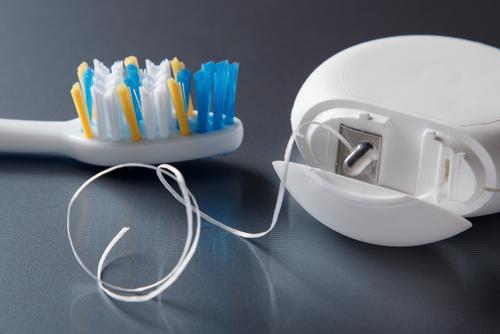Rheumatoid arthritis (RA) is a particularly nasty form of arthritis. While the more common form of arthritis — osteoarthritis — typically results from use and overuse of joints which wear down protective cartilage, RA is known to result from autoimmunity. The immune system is misdirected to attack the lining of joints, causing swelling, severe pain, and if not treated joint destruction. Not only the joints are affected, however. RA involves an inflammatory process that can affect many body organs, including the skin, heart, lungs and bone marrow. For example, it's known that RA sufferers have a higher risk of developing osteoporosis.
Of course, just because autoimmunity is involved doesn't mean that external factors can't or don't play an important role in instigating the disease. And recent research published in Science Translational Medicine suggests how good dental care might well be an important factor in preventing the onset of RA.
The investigators, led by Dr. Maximilian Koenig from the Johns Hopkins University School of Medicine, explained that mucosal surfaces such as those of the gums, lungs and GI tract have long been suspected as possible sites of RA initiation. In fact in the early part of the 20th century, pulling all a patient's teeth was thought to be a means of treating RA — it didn't work, though.
This recent study investigated the possibility that a bacterium associated with periodontal disease — Aggregatibacter actinomycetemcomitans (Aa) — could be the initiator of the autoimmune feature of RA. The investigators noted that Aa, of all the other identified microbes, was the only one known that could produce the spectrum of antigens found in the joints of individuals with RA.
To investigate this possibility, they collected fluid from the gum regions of people with periodontal disease and from those of controls and analyzed them for the presence of altered proteins — those which had been "citrullinated"1 which are known to be immune system targets. Further, they identified a pore-forming toxin, leukotoxin A (LtxA) — produced by Aa — which triggers the production of the citrullinated proteins. And the immune system will make antibodies to such proteins — the autoantibodies. They determined that 62 percent of individuals with periodontitis had antibodies to LtxA, compared to only 11 percent of controls without periodontal disease (a statistically significant difference). Also, these antibodies were significantly enriched in patients with RA compared to healthy patients without periodontitis.
In sum, people with periodontitis are more likely to have the Aa bacterial toxin and thus more likely to produce targets (citrullinated proteins) for the immune system. This in turn, links periodontal disease and rheumatoid arthritis.
While these data are certainly not the last word in RA initiation, they are reasonable evidence that the disease can be triggered by the products of this particular bacterium, and could provide a means of identifying those at risk of developing the condition. At the very least, they underline the importance of good dental hygiene and health.
1. A citrullinated protein is one in which the amino acid arginine is converted to the amino acid citrulline. This change affects the way the protein folds and functions.




